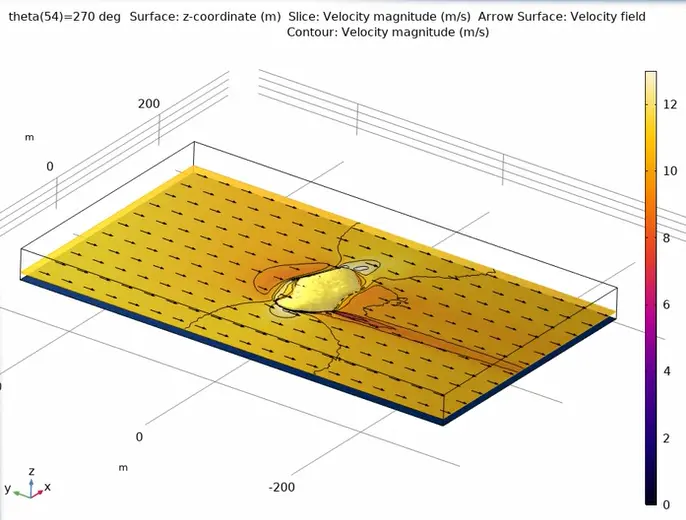Evaluation of Cloud Computing Providers in Terms of Massive Simultaneous Cloud Computing (MSCC), Efficiency and Usability from an Engineer's Perspective.

In the context of this internally funded project, an evaluation of different HPC cloud computing providers in terms of efficiency and user-friendliness/user experience is carried out. The main application is COMSOL Multiphysics and the possibilities that the cloud offers for large simulations and parameter studies in terms of scalability and flexibility. Special attention will be given to Massive Simultaneous Cloud Computing (MSCC).
Today, the field of numerical simulation is confronted with increasing demands for data-intensive investigations. On the one hand, engineering tasks require parameter studies, sensitivity analysis and optimization runs on an ever-increasing scale. On the other hand, the field of Artificial Intelligence (AI) with its notorious hunger for data pushes for more and more extensive, numerically derived learning, testing, and validation data for the training of e.g. Artificial Neural Networks (ANN). Furthermore, the current age of cloud computing has created the conditions that nowadays every user of simulation software has access to potentially unlimited hardware resources.
Once you have decided to outsource your applications or simulations to the cloud, you are faced with the challenge of deciding which of the many providers currently available meets your business needs and requirements. The providers differ greatly in their offerings and in the way they interact with the cloud. This study focuses on COMSOL Multiphysics. With the help of cloud partners, COMSOL Multiphysics supports, running in a Virtual Private Cloud (VPC). These official partners include Nimbix, Rescale, Total-CAE, CPU 24/7, Penguin Computing, and Compute Canada. In addition to these official partners, the Cloud-Companion, newly developed by Kaleidosim Technologies specifically for COMSOL Multiphysics, will be tested.
The different vendors will be evaluated from both a technical and usability/user experience [2] perspective, and the entire workflow of initial setup and daily engineering tasks will be considered. The study includes aspects such as:
- Account creation
- License integration
- Data transfer
- Storage of data
- Automation
- Documentation / Support
- Pricing